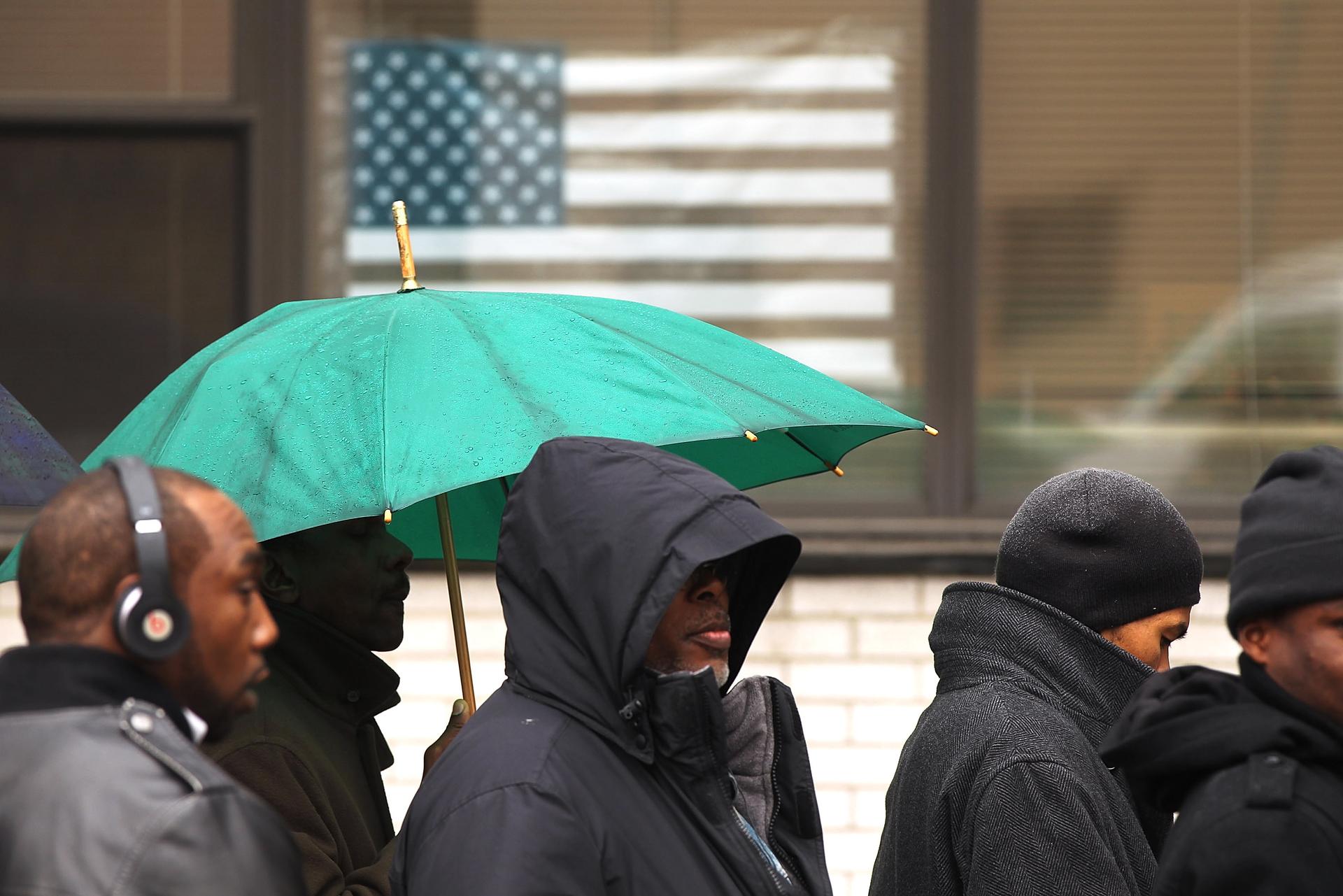US economy: Yes, it’s bad
People looking for jobs wait in line to speak with potential employers at the Brooklyn Job Fair on April 13, 2011 in the Brooklyn borough of New York City. Thousands attended the event which featured nearly 80 employers in a variety of professions.
Grim.
That's the latest word on the U.S. economy after the Labor Department's monthly unemployment report showed that the world's largest economy added a paltry 54,000 jobs in May, much less than economists were expecting.
The U.S. unemployment rate, meanwhile, ticked up to 9.1 percent as more Americans looked for work.
The world watches this report every month because jobs are the key number for any economy. That's because people don't tend to spend if they don't have work, and consumer spending is the biggest driver for the U.S. economy.
Today's bad news raises fears about a double dip recession in the U.S., particularly with energy prices climbing and manufacturing jobs — which had been a bright spot — declining.
Note this particularly ugly stat: 13.9 million Americans are now out of work. That's out of a total workforce of 153.7 million.
Here's a quick economist reaction round-up from around the web:
“The employment data has confirmed the market’s worst fears about a marked slowdown in U.S. economic activity, to the extent that any one report can be relied upon,” Alan Ruskin, strategist at Deutsche Bank, said in the Financial Times.
“The very disappointing [jobs report] will undoubtedly lead to calls for the Fed to continue with its large-scale asset purchases beyond the scheduled conclusion of QE2 at the end of this month,” added analysts at Capital Economics.
“The economy clearly just hit a brick wall,” Paul Ashworth, chief United States economist at Capital Economics said in the New York Times. “It’s almost as if it came to a complete standstill.”
"There is so much slack in the labor market it's going to take a long time to get the unemployment rate down to between 6 and 7 percent. That's going to take years," Stephen Bronars, a senior economist at Welch Consulting in Washington, told Reuters.
But not everyone was all doom and gloom:
“I do think there’s more strength in the economy than recent numbers have been indicating,” Augustine Faucher, director of macroeconomics at Moody’s Analytics told the New York Times. “I realize that’s not much consolation for people who are already out of work.”
"It is likely that this will be a soft patch in the coming months but overall it will probably be a soft patch rather than a double-dip recession or something worse," Sean Incremona an economist at 4CAST in New York told Reuters.
Soft patch or double dip?
We shall see.
